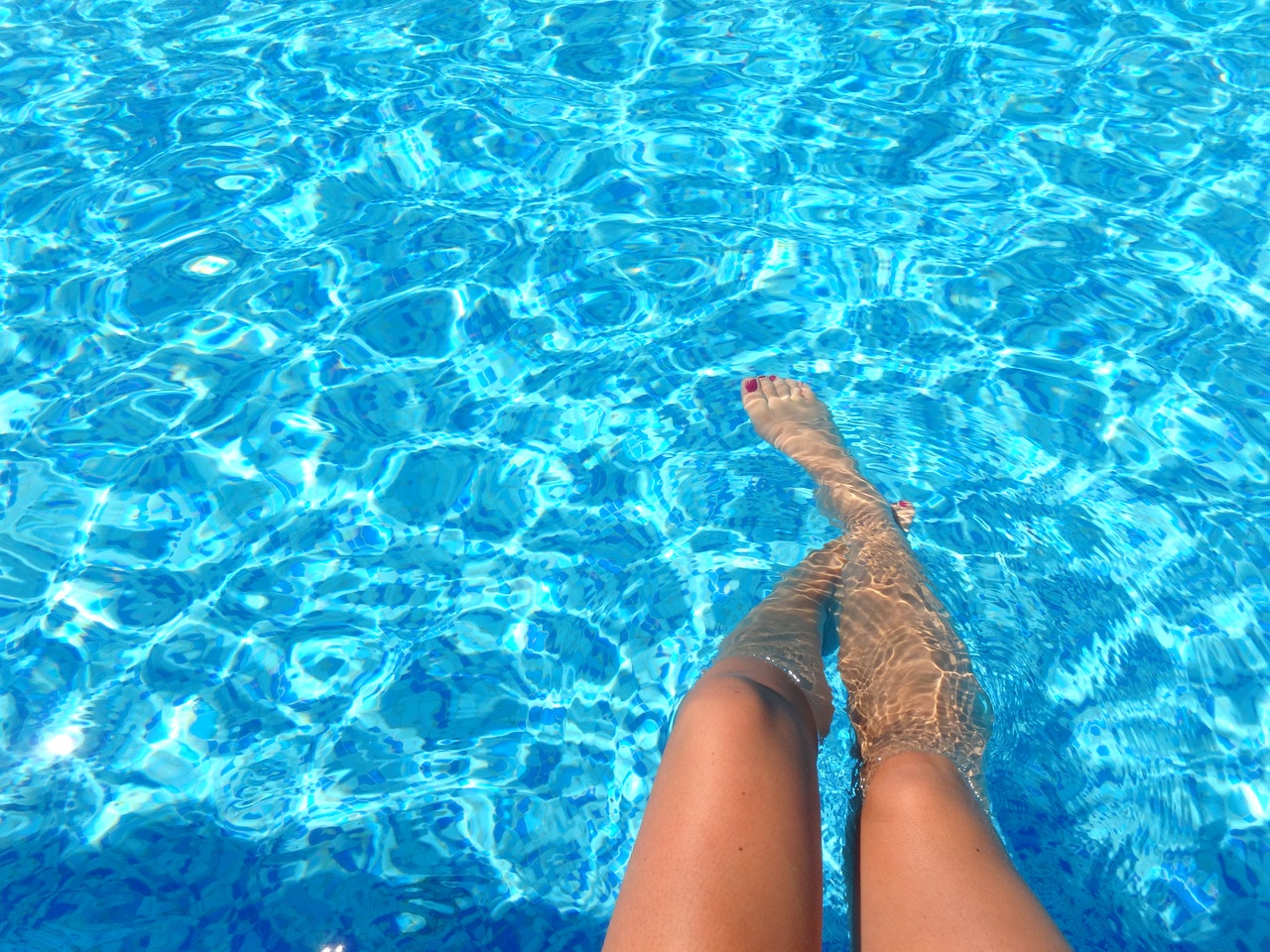Eye irritation, skin rashes, infections, and gastrointestinal illnesses are just some of the things that can happen if one swims in a dirty pool, which is exactly why proper pool maintenance is so important. However, it’s not always easy to determine when your pool is too dirty for swimming. Since a pool always has a certain level of nastiness (and chemicals can only do so much), how do you know if it’s too dirty?
Here are the telltale signs your pool is too dirty for swimming:
1. Cloudy water
When the water in your pool is cloudy, it may be because there is a large number of foreign particles in it. These particles may come from human sources (sunscreen, lotion, sweat, bodily fluids, skin proteins, oils, etc.), environmental sources (algae, pollen, sand, dust, etc.), and chemical sources (calcium carbonate, calcium hypochlorite, chlorine, water sanitizers). This is especially common in uncovered pools because rainwater can carry contaminants with it.
Cloudy water does not only make for an unsightly pool, but the contaminants that cause the cloudiness may be harmful to one’s health. If you start noticing that your pool water is unnaturally opaque, it may be time to find muriatic acid substitutes and other pool cleaners.
2. Algae growth
Algae is a pretty obvious sign that a pool is dirty. They appear as green, yellow, black, brown, or pinkish fur-like slime, usually accumulating on the steps or the corners of a pool. Some types of algae are not harmful, but there are others that can cause skin irritation, abdominal illnesses, and ear infections. Some are even so toxic that they can be fatal. Furthermore, the presence of algae in a pool can eventually damage it.
Once you notice algae in or around your pool, remove it as soon as possible and run the pump more frequently. You may also need to “shock” your pool (superchlorinating) to completely kill off the algae. Be sure to remove debris and inflatables from the pool as well. If you can’t seem to get rid of the problem yourself, call in a pool professional and hold off swimming in the pool until the algae are removed.
3. Increased use
Even if your pool looks clean, having more people swim in it or using it more frequently yourself is a sign that you need to up your maintenance efforts. Otherwise, other signs of a dirty pool (cloudiness, irritation, strong chemical smell) may start to pop up soon.
To keep your pool from getting excessively dirty with increased use, have people take a shower before getting into the water. Showering or at least rinsing off with the garden hose helps get rid of dirt, sweat, and bacteria from people’s bodies before swimming, thus reducing the number of contaminants in the pool. Aside from that, showering provides an extra layer of protection on one’s skin and hair, which helps avoid dryness and irritation.

4. Strong chemical smell
All chlorinated pools smell like chemicals to a certain degree. However, when the chemical smell is too strong, it could mean that the pool water contains chloramines or the chemical compounds that form when chlorine and bodily fluids combine, signifying that the pool is improperly treated.
Chlorine helps destroy pool germs that can cause infection, gastrointestinal upset, and a myriad of other health problems. Hence, when the water smells too chemical-y, it doesn’t mean that there is too much chlorine in the pool. In fact, there is not enough to keep the germs at bay!
If your pool smells stronger than usual, it may be time to superchlorinate the water to destroy the chloramines in the water, as well as the organic compounds that form them.
5. Negative health effects
A dirty pool can pose serious health risks. At the very least, the contaminated water can cause temporary irritation of the eyes and skin. However, the effects can also be more severe, leading to infections, skin rashes, stomachaches, diarrhea, and vomiting. These are caused by bacteria often found in pools, such as e. Coli, cryptosporidium, salmonella, hepatitis A, and giardia. Prolonged exposure to these contaminants can lead to even worse symptoms and severe health conditions, hence, it is crucial to clean the pool at the first sign of negative health effects after swimming.
If you think about it, there is so much nasty stuff in an average pool. While it is not feasible to keep your pool clean at all times, it is incredibly important to perform regular maintenance–both for the condition of your pool and the health of everyone that uses it.

